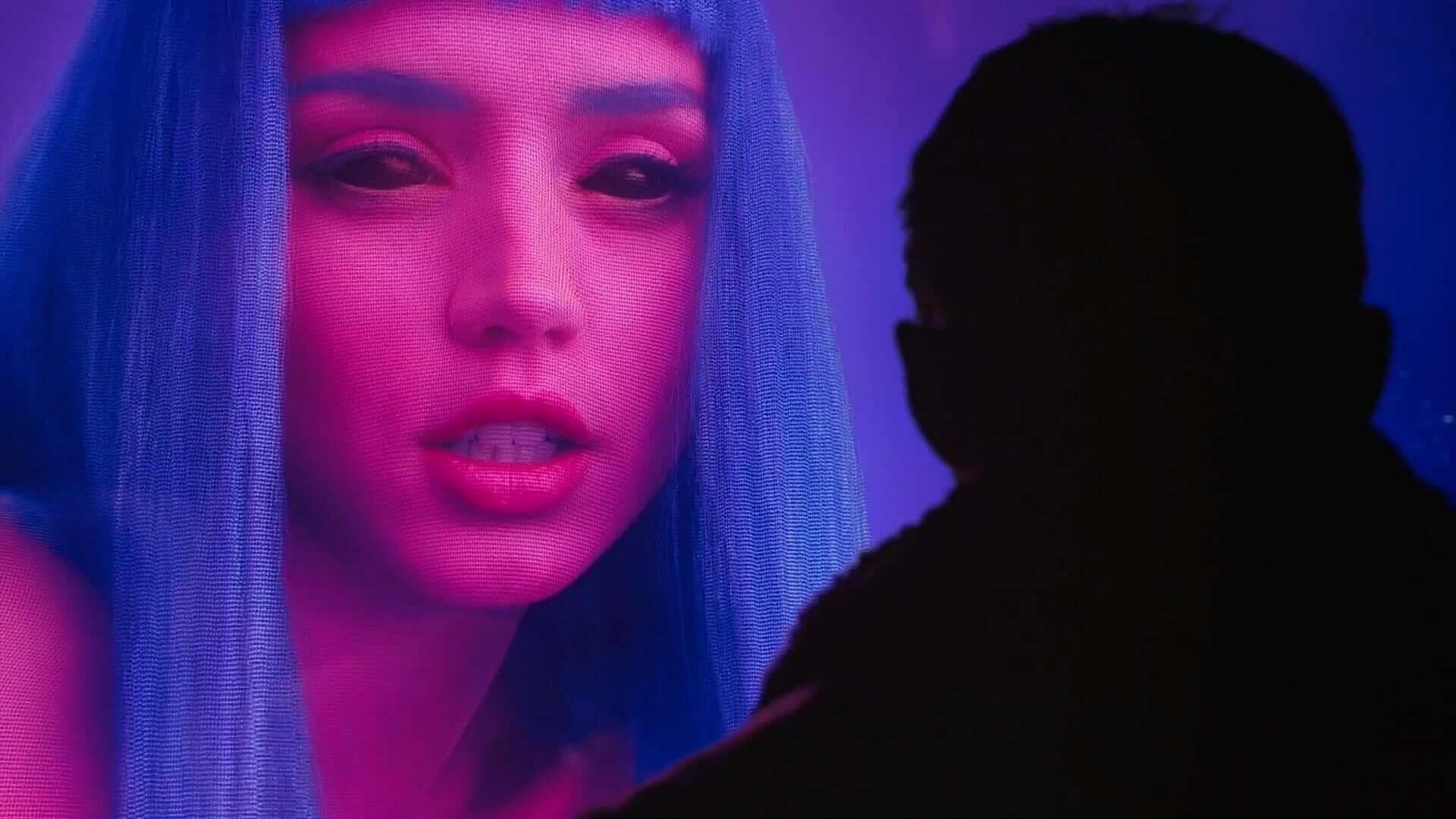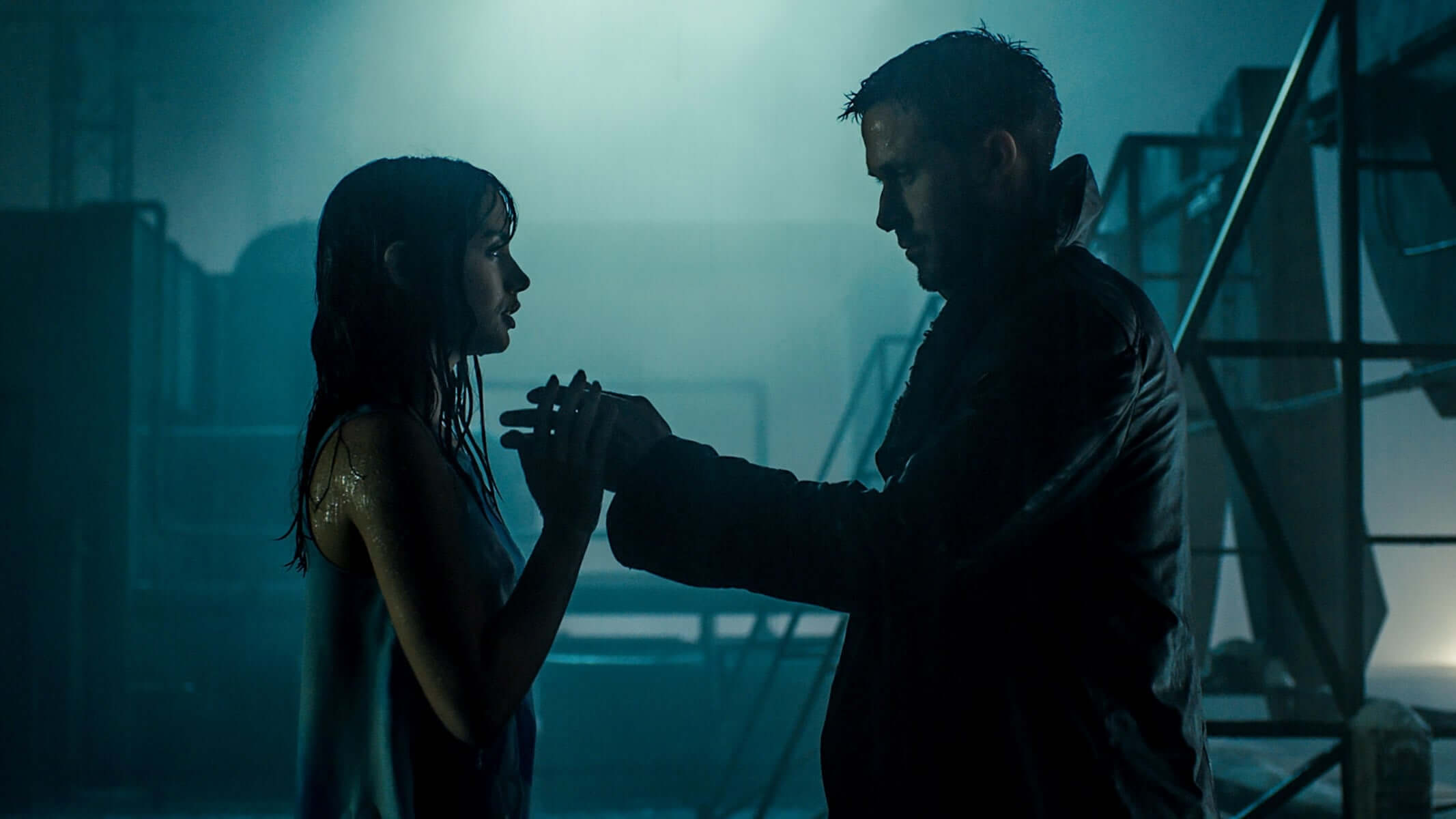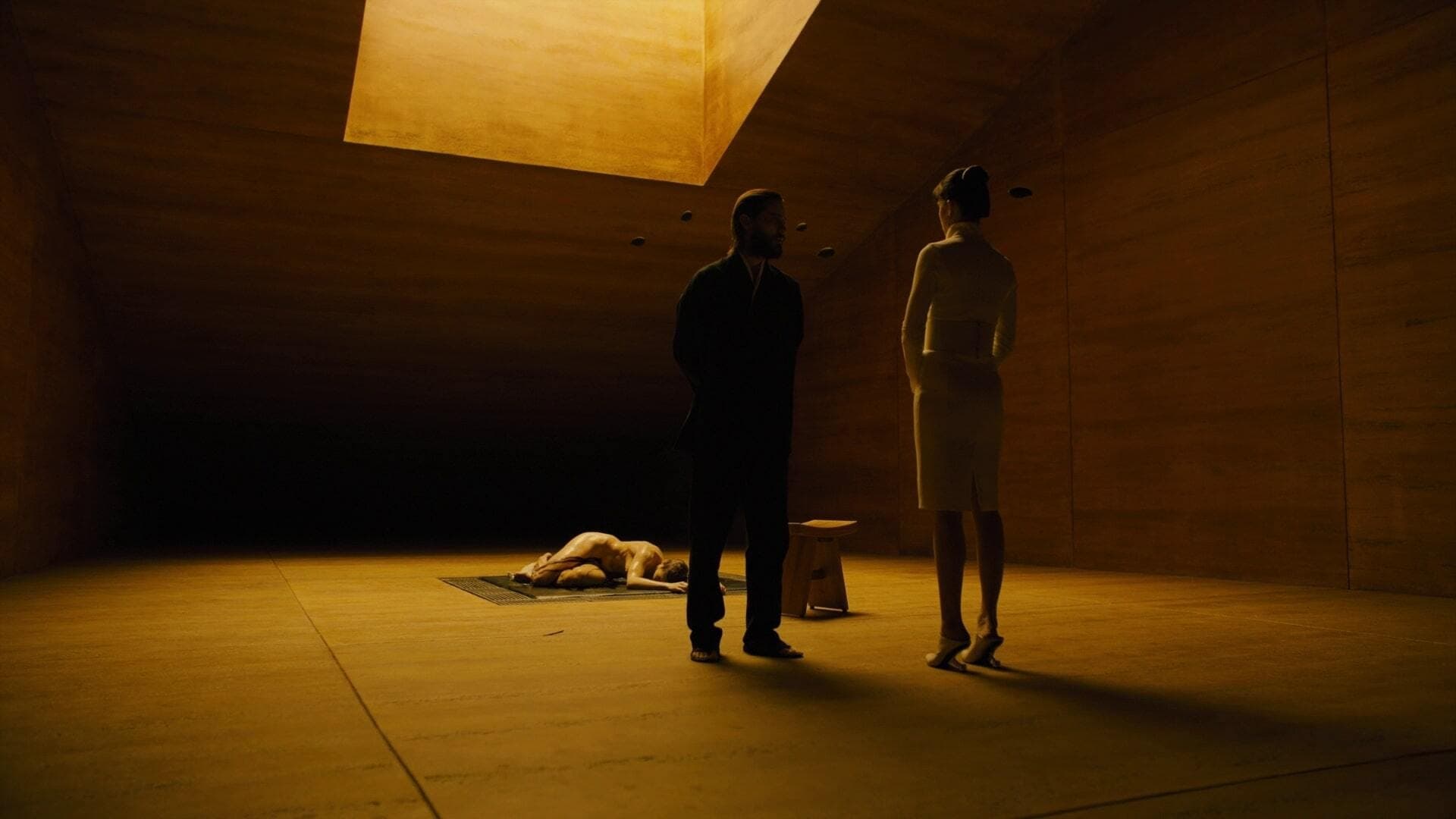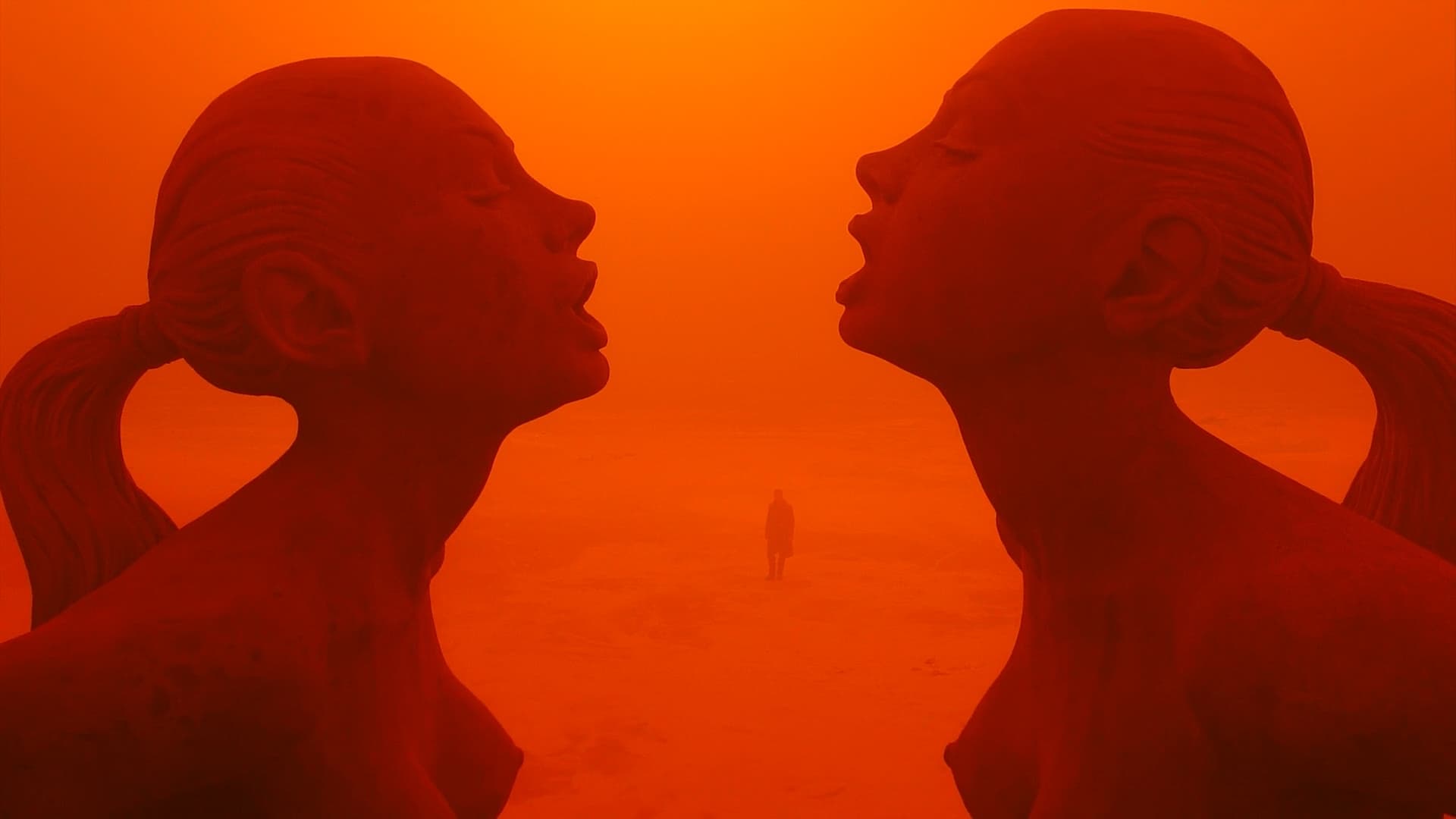Blade Runner 2049 is a 2017 science fiction film and is the sequel to the 1982 Ridley Scott film Blade Runner (at least, one or more of its five official versions). The colossal task of directing this follow-up falls to Denis Villeneuve (Sicario, Arrival, Prisoners), while Ridley Scott produces on a screenplay penned by Hampton Fancher and Michael Green. The film stars Ryan Gosling as Agent K (the titular Blade Runner), Harrison Ford as the returning Rick Deckard, Jared Leto as the enigmatic Niander Wallace, and Ana de Armas as Joi. The cast is rounded out by Robin Wright (The Princess Bride, House of Cards), Dave Bautista (Guardians of the Galaxy), Mackenzie Davis (The Martian, Black Mirror), Lennie James (The Walking Dead), Barkhad Abdi (Captain Phillips), and Carla Juri (Wetlands).
Ascension is one word for it. In a world where Star Trek has become an action franchise and tolerance for methodically paced science fiction has seemingly reached an all-time low, Blade Runner 2049 is nothing less than a gift; bestowed upon an audience that may or may not be grateful to accept, not unlike a young child who unwraps a new pair of socks on Christmas morning. “It’s great, Mom.” But that pervading thought that it could’ve been a new video game lingers guiltily on the conscience. For many, however, Blade Runner 2049 may be exactly what you’ve been waiting for. It reaches for the stars and, in nearly every respect, ascends gracefully.

35 years later (30 in-universe), we extend an eager if uneasy second gaze into the sleazy declension of whatever Los Angeles has become. True to the original film (or at least the aptly color-corrected Final Cut), legendary cinematographer Roger Deakins not only manages to frame the dark mise en scene and low-key contrasts that were so prominent in the film’s predecessor, but lends an entirely new perspective to fresh settings that feel no less true to the universe of Blade Runner. Against the weathered neon cesspit that is Los Angeles, a cool grey, but no less grim, isolationism litters the junkyards of San Diego; and in Las Vegas, a hellish yet erotic romanticism extends across its orange wastelands. In this dauntingly epic sequel, I walked away feeling profoundly blown away by some of the best cinematography ever put to film, and immensely satisfied with the expansion of the story.

To say almost nothing of the story is to do you a service. For all intents and purposes, know only that Ryan Gosling plays K, a Blade Runner whose duty is to hunt down illegal Replicants (artificial humans that fall in a grey area between android technology and genetic engineering). K is thrust into a noir-influenced mystery and seeks out ex-Blade Runner Rick Deckard (Harrison Ford) in pursuit of the truth behind Replicants. Blade Runner 2049 is more of a crowd-pleaser than the first film, justifying its nearly 3-hour runtime with far better pacing and just enough action to keep things interesting. I love the original Blade Runner, but its flaws are apparent (yes, even in the improved cuts); it struggles to reconcile its visual beauty and the weight of its themes with an inconsistent pace that runs itself across the board of adjectives: meandering, intriguing, dull, expositional, meditative, exciting, drawn-out, etc. For its amplification of established themes and the birth of new ones, Blade Runner 2049 is an unqualified triumph that transcends what came before.

The provocation of emotions is perhaps the film’s greatest strength. There is a sense of pity for the way Replicants are treated in this world. As you pity them, you recognize the blinded apathy so common in humanity when confronted with those deemed to be lower than you. Empathy… pity… compassion… these emotions seem to fade as the threat to your dominance increases. Juxtaposed against the near-perfect human copies are lower forms of Artificial Intelligence, something entirely new to Blade Runner. Jared Leto’s portrayal of Niander Wallace represents the god complex of humanity itself… the self-appointed authority over nature and all its inhabitants. Underneath the gloomy exterior, the narrative offers little optimism, reveling in tragedy and only small helpings of hope. The catharsis offered by Blade Runner 2049 may be outwardly bleak, but Denis Villeneuve does not skid the material across an emotional plateau, instead weaving it through a mountain range of highs and lows.

It remains to be seen if 2049 is the self-contained sequel it presents itself to be or if Hollywood is banking on franchise potential. If the film’s disappointing box office earnings thus far are any indicator, perhaps this epic is destined, for better or worse, to be the end. Like Villeneuve’s previous film Arrival, this film reaches back to a different era of science fiction. Unfortunately, this immensely beautiful piece of filmmaking may not be what general filmgoers are looking for. Is that a shame? In a word, yes. My only hope is that more films like Blade Runner 2049 can continue to be made in today’s world… and perhaps a more meditative form of sci-fi will reign supreme again someday. For my part, and I’m sure it’s not an empty room I proclaim this to, this is one of the finest sequels ever made and one of the best sci-fi films of all time.
Blade Runner 2049 is an epic achievement that outruns its predecessor, preserving and enhancing not only the aesthetic beauty of the latter but also the scope of the thought-provoking science fiction themes.
Films like this are rarely seen in today’s landscape.

Related: 5 Star Reviews - Borrowing Tape
Watch Blade Runner 2049 Now
